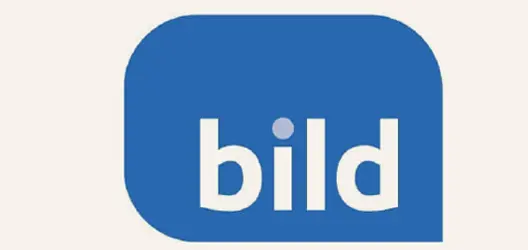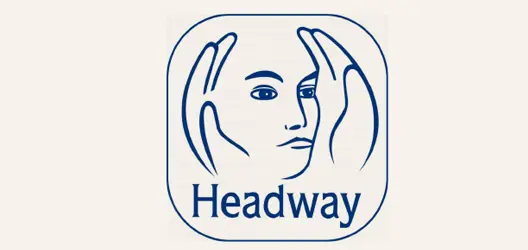
If you have a recognized primary healthcare requirement, care is provided free of charge in the UK through NHS Continuing Healthcare (CHC) funding. This form of care is organized and funded by your local Clinical Commissioning Group (CCG), offering you the flexibility to receive care either in a primary or acute healthcare setting or in the comfort of your own home.
Your CCG will conduct a thorough assessment of your needs to determine your eligibility for healthcare funding. To qualify for CHC funding, the assessment must establish that your needs are primarily healthcare-related, rather than solely social care needs.
UK Health Care Support has established robust partnerships with numerous CCGs, driven by our shared commitment to securing the appropriate funded care packages for our clients. This collaborative approach ensures that individuals receive the right care when needed throughout their lives.
We work closely with our clients and their families throughout the process, involving everyone in the development of the support plan. This ensures individuals can maintain their independence and well-being at home while providing comprehensive support to their families.
The NHS Continuing Healthcare Checklist serves as an initial screening tool employed by the NHS to identify individuals who should undergo a comprehensive assessment to determine their eligibility for NHS Continuing Healthcare funding. It represents the initial step in the evaluation process to establish whether you qualify for healthcare funding.
The NHS Continuing Healthcare Checklist comprises 11 assessment points that examine your care needs across various ‘domains,’ which are distinct aspects of your life where you may require additional support, such as nutrition or mobility.
The process is typically swift, and the threshold for advancing to the subsequent assessment stage is set at a relatively low level. If you require any form of supplementary care or support, it is likely that you will proceed to the full assessment.

Determining your eligibility for NHS Continuing Healthcare funding can be a comprehensive process, and the eligibility criteria are rigorous, which can be challenging for some families. Fortunately, our strong partnerships with local Clinical Commissioning Group (CCG) teams enable us to work efficiently to achieve the best possible outcome for our clients.
Here is a step-by-step guide to the complete application process:
If you have nursing requirements that necessitate nurse-led care, the NHS will cover the weekly fee for nursing care delivered in your own home. Similar to applying for NHS Continuing Healthcare funding, you will undergo an assessment of your needs.
Initially, it’s advisable to explore the possibility of NHS Continuing Healthcare funding. If your application for this funding is declined, NHS Nursing Care funding is an alternative avenue to receive financial assistance toward your care expenses. Many families find this payment beneficial in alleviating the overall cost of care.

At UK Health Care Support, clinical excellence is the cornerstone of our ethos and service philosophy. Our commitment to top-tier care is reflected in our nurse-led home care service, which is vigilantly overseen and backed by our seasoned regional nursing teams.
Our regional nursing teams comprise qualified and registered nurses, certified by the Nursing and Midwifery Council (NMC). Each possesses expertise in distinct nursing specialisms such as general adult nursing, learning and disability nursing, mental health nursing, and children’s nursing. This wealth of specialization empowers them to orchestrate and deliver safe, effective complex care to our clients. The central focus remains on ensuring an optimal care experience for our clients and their families.
Our nurses work hand in hand with care co-ordinators, carers, clients, and families to pinpoint precise care needs and strategize the most fitting care provisions. Their expertise ensures our carers are equipped with the necessary skills to deliver top-notch nurse-led care. Additionally, our nurses offer ongoing advice and unwavering support to families, aiming to instill confidence and assurance in the services we offer

Personal Health Budgets
If you are an adult eligible for NHS Continuing Healthcare Funding or a child receiving Continuing Care or NHS Funded Nursing Care, you will have the option to receive your funding through a Personal Health Budget (PHB).
The primary aim of a PHB is to empower individuals living with long-term health conditions and disabilities to have control and choice in how their funding is used to meet their health and well-being needs, whether in their own residence or a residential or specialized care setting.
The funding is provided by your Clinical Commissioning Group (CCG) and, in some cases, may be jointly funded with your local authority, depending on your care package.
You have several options for managing your funding and care arrangements:
Direct Payments:
Third-Party Personal Health Budget:
Notional Personal Health Budget:
If you manage your personal budget independently, you have the flexibility to choose your preferred care provider. If the CCG manages the budget, your choice may be limited to providers on their approved supplier list. However, it’s important to note that CCG or social services-approved suppliers have undergone rigorous safety and compliance checks.
If you are determined to be eligible for NHS Continuing Healthcare, you may no longer be eligible for certain other forms of funding and benefits. Here is a list of benefits that can be claimed in conjunction with NHS Continuing Healthcare, depending on whether you receive home care or reside in a care home:
| Funding Type | Home Care | Care Home |
|---|---|---|
| Local Authority Care Funding | No | No |
| NHS-Funded Nursing Care | No | No |
| Disability Living Allowance | Yes | No |
| Attendance Allowance | Yes | No |
| Pension Credits | All | Some |
| State Pension | Yes | Yes |
Healthcare Funding Resources
If you require impartial information and advice regarding your home care funding options, numerous charities and advisory services can provide valuable guidance. These include:
There is an organization known as ‘Care to Be Different,’ which offers practical advice on navigating NHS Continuing Healthcare funding. Care To Be Different was established by Angela Sherman, who had her own challenging experience securing healthcare funding for her parents. The website provides a wealth of tips and information on funding, funding assessments, and care fees

“Both of my husband’s carers have been absolutely brilliant. They are very professional and have a real calming influence, which is essential with my husband’s care. They are both naturally empathetic and the rapport that they have both built with my husband has enabled me to trust them and given me much needed peace of mind.”

“I have been very impressed with the efficiency of your company and the professionalism and compassion of your carers. My mother certainly regarded her carers as friends for the last year of her life and her mobility has much improved.”

“We could not be happier with our choice of care provider. UK Health Care Support in London have lived up to the high standards we were looking for. Professionalism and compassionate – from the management team to the carers. I would have no hesitation in recommending them to anyone who finds themselves in the same situation as us and needs peace of mind, trust and quality of care.”

“Thank you to UK Health Care Support in North London. You have managed to provide a fantastic service with skilled and consistent carers over the past few months . The progress she has made would not have been possible without them.”







Head Office: OFFICE-17 Wellesley House, 1st Floor, 98-102 Cranbrook Road, Ilford, IG1 4NH
